We humans have been living in cocoons for a very long time. Coziness and comfort of adequacy have long killed the curiosity of the conqueror within us. We have forgotten to question and challenge the status quo. We are now existing as a faceless public of the middle-class-republics. We have forgotten that the crowd creates chaos, but citizens create civilizations. When excel replaces statistics, we need to seriously look at the possibility of annihilation at our doorsteps. All these have made a compelling case for paradigm shift in which the accumulation of challenges to supposed truths will eventually overturn the accepted understanding of them.
Is our idea of “educated-intelligence” faulty?
We as a society have bestowed the crown of intelligence to people who are either good at numerals or articulation or both, since time immemorial. In layman's term the idea of success revolves around Mathematics or English or an amalgamation of both. What we recognise, count, and celebrate as success is an outcome of a probabilistic accident. If we acknowledge that evolution is deciding all outcomes, then it hurts our self-esteem. If the sequence of the dice is predetermined then why are we here on the Earth, in the first place? At a time when systematic and structural inequality prohibits the majority from even participating in the play, how does it matter who is winning the battle? At the end of the day, we all are losing the war. Exclusive definition of merit deters the inclusive culture of intelligence from taking a foothold. Wisdom seems a far-fetched dream. Is it possible for us to imagine and design a better system where diversity of thoughts will be considered as intelligence? Questioning minds will be celebrated? What if our previous assumptions are untrue? Is it possible to design a system of collective intelligence? Competitive callousness led us to a corner. It's time to turn around and face the challenges head on. Avoiding difficult questions serves no purpose. We need to cooperate, coordinate, collaborate and design better structures on a strong foundation for today and for the future.
In this context we should ask the next question: if our established ideas of workplace performance measurement are faulty?
How to measure workplace performances? Who is the best performing worker? How to compensate the workers? How to design the right compensation structure? What is excellence? How to reward excellence? These are some of the questions which have been making us anxious and paranoid for quite a long time. We have developed innumerable models, theories, structures to solve these puzzles, but to no end. The British created 'babus'. We have created 'managers'. However, irrespective of the era and access to “formal training”, both these groups display similar levels of “competence” and “efficiency” in their understanding and contribution.
The lack of, involvement, innovation, and motivation in the workforce can be contributed to many factors. But primarily it stems from our stubborn refusal to see things the way they are. Women tend to live longer than men, even in societies with deep-rooted and widespread gender inequality. Yet we call women the “weaker” gender. Farmers’ understanding of soil quality, which is a result of generations of observations, gets quickly dismissed by ideas cooked in AC rooms by experts who have probably made a few “field visits”. We think that through taxes (mostly the indirect ones) urban population are subsidizing the villagers. But have we considered that without the hapless migrants, who are working “cheap” as vendors, domestic helps, construction workers etc., our city existence will become way more expensive? So, are they not the ones who are subsidising our city life? We all pulled resources to develop vaccines for the recent pandemic. And this is how it should be. But, is African Ebola not a disease worth a vaccination?
Broken society results in drunken minds. Each one of us is competent. Each one of us is capable. But if we all focus on our own individual capabilities only, then the result would be complete chaos. Diversity in the workplace can increase our performance and productivity as a whole. The differences in ideas and in output should be the cause for celebration and not for condemnation. Sharing the decision table with a diverse group of people can very well be the starting point of a unique solution. Convergence of curious minds can do wonders.
References-
https://www.theatlantic.com/magazine/archive/2021/01/the-making-of-a-model-minority/617258/
https://www.washingtonpost.com/business/2020/09/25/black-parents-college-education/?arc404=true
https://www.washingtonpost.com/business/2020/10/23/redlining-black-wealth/?arc404=true
https://www.washingtonpost.com/business/2020/11/06/black-net-worth-wealth-gap/?arc404=true
https://www.washingtonpost.com/business/2020/10/16/how-race-affects-your-credit-score/?arc404=true
Author




